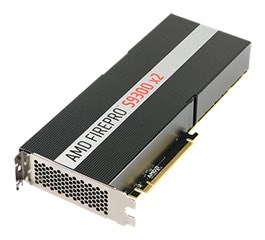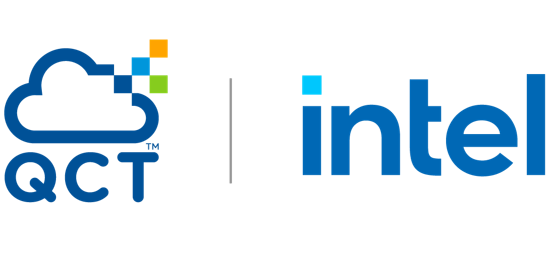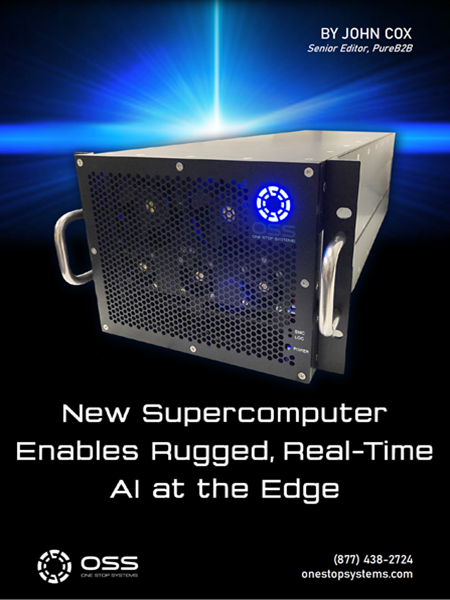 Today AMD announced that researchers at the Canadian Hydrogen Intensity Mapping Experiment (CHIME) will harness AMD FirePro S9300 x2 Server GPUs to analyze extraordinary amounts of data to help create a new, very detailed 3D map of the largest volume of the Universe ever observed. Rather than using traditional dish-shaped telescopes, CHIME consists of four 100-metre-long cylindrical reflectors which cover an area larger than five professional hockey rinks and gathers signals for the critical computational analyses supplied by the AMD FirePro S9300 x2 GPU cluster.
Today AMD announced that researchers at the Canadian Hydrogen Intensity Mapping Experiment (CHIME) will harness AMD FirePro S9300 x2 Server GPUs to analyze extraordinary amounts of data to help create a new, very detailed 3D map of the largest volume of the Universe ever observed. Rather than using traditional dish-shaped telescopes, CHIME consists of four 100-metre-long cylindrical reflectors which cover an area larger than five professional hockey rinks and gathers signals for the critical computational analyses supplied by the AMD FirePro S9300 x2 GPU cluster.
“We’re proud to participate with the CHIME project in this cosmic opportunity to map the evolution of the Universe. The applications of instinctive computing are expanding rapidly as seen in this fascinating CHIME project, through the use of powerful graphics compute capabilities,” said Greg Stoner, senior director of Radeon Open Compute, Radeon Technology Group, AMD. “Not only is the new AMD FirePro S9300 x2 Server GPU the world’s fastest single-precision GPU accelerator, it is also the world’s first professional GPU accelerator to be equipped with High Bandwidth Memory and the first to fully support the Radeon Open Compute platform – an integral element of the GPUOpen compute initiative.”
The CHIME project was created to investigate the discovery that the expansion of the Universe is speeding up rather than slowing down. Using consumer technologies similar to those found in common radio receivers, the telescope collects radio waves that have travelled through space for up to 11 billion years and feeds them into a massive supercomputer powered by a series of AMD FirePro S9300 x2 GPUs. The intense number crunching required to map the Universe’s expansion in this way was previously cost-prohibitive, but is now being enabled by AMD FirePro GPUs. The anticipated results will help create a highly-detailed map showing the intensity of the hydrogen radiation from billions of galaxies, which will help scientists understand the accelerating expansion of the Universe.
Based on the third generation AMD Graphics Core Next (GCN) architecture, the AMD FirePro S9300 x2 Server GPU delivers up to 13.9 TFLOPS of peak single-precision floating point performance – greater than any other professional dual GPU accelerator available on the market today for single-precision compute1. It is the first GPU for datacenter use equipped with High Bandwidth Memory (HBM). The 1TB/s memory bandwidth enabled by HBM on the AMD FirePro S9300 x2 GPU is 3.5X the memory bandwidth of the closest competitive solution2 while providing over 15X the memory bandwidth and 12X the peak single-precision performance of competing CPU solutions, making it a compelling addition to traditional x86 platforms3.
CHIME faces an extraordinary computing task, but with the onset of previously unavailable technology and tools such as the AMD FirePro S9300 x2 GPU, we now have the computational power, bandwidth, and efficiency to make this data analysis possible to study the impact of dark energy on our Universe,” said Professor Keith Vanderlinde, of the Dunlap Institute for Astronomy & Astrophysics at the University of Toronto. “Our research is the result of the combined efforts of dedicated hardware, compute software and scientific research. We’re very appreciative of the supporting efforts from AMD in this project.”
To expose cutting-edge compute capabilities of the AMD FirePro S9300 x2 GPU and support unique opportunities such as the CHIME project, AMD developed the Radeon Open Compute platform (based on the Boltzmann initiative), a Linux-focused open source software parallel computing platform optimized for HPC and Ultra-scale computing. The Radeon Open Compute kernel provides direct access to the graphics hardware, offering programmers more control over the code execution. Discover more at GPUOpen.com for the Radeon Open Compute platform-optimized open source math libraries, benchmarks and applications from AMD and third-party partners.



